|
Stocks are Flying High. Why Aren’t Mine? Investors Ask Natalie. Dear Natalie: Every day I hear that stocks are hitting new highs. Yet my personal plan isn’t seeing such spectacular gains, and many of my positions are losing money. Why aren’t my stocks performing as well as the stock market is? Not FOMO – RMO (Really Missing Out) Dear Really Missing Out, Your brokerage statement is showing that your returns were terrible last year, with 26% total gains in 2023 in the S&P500 vs. your 5% gain. FYI: The Dow Jones Industrial Average gains were only 13.9% in 2023. Without the Magnificent 7, the S&P500 gains would have been just 9.94%. It's also important to put things in perspective. As you can see in the chart above, the superior returns of 2023 didn't even bring the S&P500 back to the highs of 2021. The index finally started ringing in new highs this month -- February of 2024. In addition to having a properly diversified plan that protects our wealth, it's important to rebalance regularly to capture gains. Otherwise, we could be riding a Wall Street rollercoaster (as is exemplified in the performance chart above.) After taking a look at your plan, there are a few problem areas that are causing your portfolio to severely lag the performance of the S&P500. These issues are pretty common in both retirement plans (especially those target date retirement funds) and managed portfolios. So I’m encouraging everybody to take a forensic look at their statements, and see how your plan is performing next to the S&P500. Many plans are performing at half the speed, and some, particularly for people who are closer to retirement, might even be losing money. Here’s why. Five reasons many portfolios are lagging the spectacular 2023 performance of the S&P 500. 1. The Magnificent 7 2. Long-Term Bonds 3. Missing Hot Industries 4. Overweighted in Value 5. Underweighted in Growth And here is more information on each point. 1. The Magnificent 7 A lot of people aren’t aware that the Magnificent 7 is largely responsible for Wall Street ringing up record highs this month. The Magnificent 7 stocks have doubled over the last year. Nvidia more than tripled. As you can see in the data I listed at the top of this blog, without the support of the Magnificent 7, the stock market would’ve been up 13%-ish rather than 26%. You don’t have any large cap growth in your portfolio (where the Magnificent 7 stocks would be), or a fund that specializes in the Magnificent 7. The few stocks you have are ones that actually lost money. 30% of the Dow Jones Industrial Average companies lost money in 2023. (Click on the blue-highlights to read more.) 2. Long-Term Bonds Long-term bonds lost even more than stocks did in 2022, at -26%. 2023 saw a small recovery, but nowhere enough to make up for the losses in 2022. Since this is on the safe side of our portfolios, it’s very important to know what is safe in the post-pandemic Debt World that we live in. Even the banks, with their Ivy-League C-Suites, are having trouble getting this right, as evidenced in the bank failures. (We’re still underweighting the financials industry, including insurance companies and brokerages.) Everyone is counting on a recovery of bonds if interest rates start getting cut in the latter part of 2024 and in 2025. However, there’s a great deal of duration risk and credit risk that remain even if the interest rate risk has abated. With regard to bonds, it’s a good idea to keep the terms short and the creditworthiness high until the duration and credit risks have been worked out. (That process can be painful to bond investors who have skin in the game.) We spend one full day on What’s Safe in our Financial Freedom Retreat. Commercial real estate is one of the areas of heightened risk in bonds and the economy, with potential ramifications on the banking industry and financial stability. 3. Missing Hot Industries In addition to having large cap growth and proper size/style diversification, we could lean in even more to the Magnificent 7, with a hot slice in our nest egg pie chart. It’s a good idea to invest in hot industries, such as artificial intelligence, cyber security, copper, crypto, gold, or even other countries. A well-diversified portfolio can include up to four slices of hot industries. Regular rebalancing helps us to capture and keep our gains when a particular industry or country shoots the moon, rather than riding the Wall Street rollercoaster. This plan, which we teach at our retreat, also helps us to invest the appropriate amount, rather than bet the farm. 4. Overweighted in Value Value funds are very problematic, particularly in the United States. When stocks are at all-time highs with elevated price-earnings ratios, nothing is actually on sale. The other side of the issue is that the companies/funds that are trading for a muted price tend to be market laggards with a great deal of concerns, including massive debt, pension and other post-employment benefit liabilities, and slow growth. Many of the Dow components that lost money in 2023 are stuck in the value funds. For this reason, we’re suggesting value replacement funds in our sample pie charts. We can diversify into other countries and get exposure to industries that are very underweighted in most of the U.S. funds, including materials, utilities, and consumer staples. As I mentioned above, many of these funds offer a higher dividend, and some also come with higher credit quality. 5. Underweighted in Growth Growth funds offer much lower dividends than value funds. However, missing out on growth industries in 2023, such as artificial intelligence, cyber security and technology, meant we missed out on the spectacular gains of equities. Knowing what we own, and having the proper mix of value, growth, small, medium and large caps, and hot industries, is a great way to protect our wealth, while also improving performance. Bottom Line Your plan has too many long-term bonds, bond funds and value stocks. This could continue to be a problem even if interest rates get cut. So, now is the time to get properly diversified and protected. If others reading this blog are worried about their wealth plan, now is the time to really know how to read your brokerage statement properly. The statement should reveal what your portfolio performance is compared to the S&P500 over the last year, and even the five or 10-year period. Knowing why your plan is underperforming might require getting an unbiased 2nd opinion. I have a coaching client who was told that he was earning 5-7% on his “conservative” investments. The real return was under 2%, due to the principal loss in value of his holdings. This was written in plain sight on the statement. He (and many of us, really) just didn’t know where to locate that information, and how to decipher the document. (Click to learn more.) When we consider how much money we have in our retirement plans and brokerage accounts, it can be more than we make in many years of earned income. So, being the boss of our money and protecting our wealth, while growing the at-risk side safely on par with the S&P 500, can be time and wisdom that is well-spent. Once we learn the life math that we all should’ve received in high school and college, and implement these strategies, all we need to do is to rebalance once, twice, or three times a year. Once we build our solid financial house, we just need to Spring clean once a year. (If you’d like an unbiased 2nd opinion on your plan, such as the person sending in this question received, email [email protected] for pricing and information.) Join us at our April 27-29, 2024 Spring Financial Freedom Retreat. Learn how to invest and grow your wealth, green your retirement plan, easy and efficacious nest egg strategies, how to get hot and diversified (including in artificial intelligence), and what's safe in a Debt World. You'll even discover how to save thousands annually with smarter big-ticket choices. Yes, it's a complete money makeover. Email [email protected] to register. Learn the 15+ things you'll master and read testimonials in the flyer on the home page at NataliePace.com. Register by Feb. 29, 2024 to receive the best price. "Ten minutes into the first day I was already much smarter about investing than I ever thought I would be in my life and I knew I was in exactly the right place at this retreat. I am amazed at how EASY and FUN it is to make my money work for me and those I love. I think this kind of information should be compulsory in schools. I wish I'd learned this sooner." CM 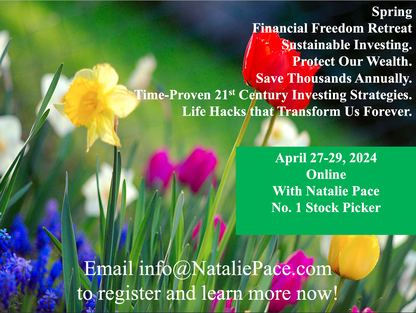 Join us for our Online Spring Financial Freedom Retreat. April 27-29, 2024. Email [email protected] or call 310-430-2397 to learn more. Register by Feb. 29, 2024 to receive the best price. Click for testimonials, pricing, hours & details.  Join us for our Restormel Royal Immersive Adventure Retreat. March 7-14, 2025. Email [email protected] to learn more. Register by April 30, 2024 to receive $200 off the regular price. Click for testimonials, pricing, hours & details. There is very limited availability, and you must register early to ensure that you get the exact room you want. This retreat includes an all-access pass to all of our online training for a full year for two and three 50-minute private, prosperity coaching sessions! 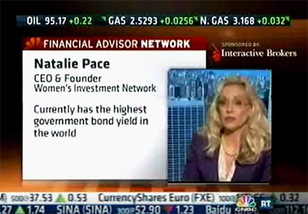 Natalie Wynne Pace is an Advocate for Sustainability, Financial Literacy & Women's Empowerment. Natalie is the bestselling author of The Power of 8 Billion: It's Up to Us and is the co-creator of the Earth Gratitude Project. She has been ranked as a No. 1 stock picker, above over 835 A-list pundits, by an independent tracking agency (TipsTraders). Her book The ABCs of Money remained at or near the #1 Investing Basics e-book on Amazon for over 3 years (in its vertical), with over 120,000 downloads and a mean 5-star ranking. The 5th edition of The ABCs of Money and the 2nd edition of Put Your Money Where Your Heart Is are the most recent releases of these books. Follow her on Instagram. Natalie Pace's easy as a pie chart nest egg strategies earned gains in the last two recessions and have outperformed the bull markets in between. That is why her Investor Educational Retreats, books and private coaching are enthusiastically recommended by Nobel Prize winning economist Gary S. Becker, TD AMERITRADE chairman Joe Moglia, Kay Koplovitz and many Main Street investors who have transformed their lives using her Thrive Budget and investing strategies. Click to view a video testimonial from Nilo Bolden. Check out Natalie Pace's Substack podcast on Apple and Spotify. Watch videoconferences and webinars on Youtube. Other Blogs of Interest Cut Your Tax Bill in Half. 9 Tips. Celebrity Jet CO2. Green Washing. The Facts. Some Solutions. Copper: Essential to the Clean Energy Transition. Uh. Oh. More Bank Trouble. Are Amazon, Square and Other Tech Companies Ripping Us Off? Housing. Unaffordable. What Works? Case studies and creative solutions. Don't Reach for Yield. Closed-End Funds. 2024 Investor IQ Test. Answers to the 2024 Investor IQ Test. Apple's Woes Drag Down the Dow. The Winners & Losers of 2023. Ozempic, Magnificent 7 & Beyond. 2024 Crystal Ball. The Underperforming DJIA, Full of Fossil Fuels and Forever Chemicals. A Spectacular Year for 3 of the Magnificent 7. The Best ROI* (Almost 40%!) & 7 Life Hacks That Save Thousands. Portugal Eliminates Tax Advantages for Ex-Pats. Holiday Gift Giving on any Budget. Including No Budget. Once in a Century Events are Happening Every Day. The Crypto Winter Enters Its 3rd Year. Earn $50,000 or More in Interest. Safely. Finally. Freebies and Deals for Black Friday and Cyber Monday. Auto Strikes End. EV Price Wars Continue. WeWork's Bankruptcy. Half-Empty Office Buildings. Problems in our Personal Wealth Plan. Solutions for Unaffordable Housing. Cruise Ships Give Freebies to Investors. Should You Take the Bait? Should You Take a Cruise? Bonds. Banks. The Treacherous Landscape of Keeping Our Money Safe. 7 Rules of Investing Air B N Bust? Barbie. Oppenheimer. Strikes. Streaming Wars. Netflix. Monero: A Token of Trust? 13 Lifestyle Choices to Reduce Waste, Pollution & CO2 & Save a Boatload of Dough. China Bans Apple 11-Point Green Checklist for Schools. Artificial Intelligence and Nvidia's Blockbuster Earnings Report Biotech in a Post-Pandemic World 10 Wealth Secrets of Billionaires and Royals. What Happened to Cannabis? Bank of America has $100 Billion in Bond Losses (on Paper) Lithium. Essential to EV Life. I'm Just Not Good at Investing. Investors Ask Natalie. Should I Buy an S&P500 Index Fund? Investors Ask Natalie. Bonds Lost More than Stocks in 2022. Do Cybersecurity Risks Create Investor Opportunities? I Lost $100,000. Investors Ask Natalie. Artificial Intelligence Report. Micron Banned in China. Intel Slashes Dividend. Buffett Loses $23 Billion. Branson's Virgin Orbit Declares Bankruptcy. Insurance Company Risks. Schwab Loses $41 Billion in Cash Deposits. Fiat. Crypto. Gold. BRICS. Real Estate. Alternative Investments. BRICS Currency. Will the Dollar Become Extinct? The Online Global Earth Gratitude Celebration 7 Green Life Hacks Fossil Fuels Touch Every Part of Our Lives Are There Any Safe, Green Banks? 7 Ways to Stash Your Cash Now. Lessons from the Silicon Valley Bank Failure. Which Countries Offer the Highest Yield for the Lowest Risk? Why We Are Underweighting Banks and the Financial Industry. 2023 Bond Strategy Emotions are Not Your Friend in Investing Bonds Lost -26%, Silver Held Strong. Save Thousands Annually With Smarter Energy Choices Is Your FDIC-Insured Cash Really Safe? Money Market Funds, FDIC, SIPC: Are Any of Them Safe? My 24-Year-Old is Itching to Buy a Condo. Should I Help Him? The 12-Step Guide to Successful Investing. The Bank Bail-in Plan on Your Dime. Rebalancing Your Nest Egg IQ Test. Answers to the Rebalancing Your Nest Egg IQ Test. Important Disclaimers Please note: Natalie Pace does not act or operate like a broker. She reports on financial news, and is one of the most trusted sources of financial literacy, education and forensic analysis in the world. Natalie Pace educates and informs individual investors to give investors a competitive edge in their personal decision-making. Any publicly traded companies or funds mentioned by Natalie Pace are not intended to be buy or sell recommendations. ALWAYS do your research and consult an experienced, reputable financial professional before buying or selling any security, and consider your long-term goals and strategies. Investors should NOT be all in on any asset class or individual stocks. Your retirement plan should reflect a diversified strategy, which has been designed with the assistance of a financial professional who is familiar with your goals, risk tolerance, tax needs and more. The "trading" portion of your portfolio should be a very small part of your investment strategy, and the amount of money you invest into individual companies should never be greater than your experience, wisdom, knowledge and patience. Information has been obtained from sources believed to be reliable. However, NataliePace.com does not warrant its completeness or accuracy. Opinions constitute our judgment as of the date of this publication and are subject to change without notice. This material is not intended as an offer or solicitation for the purchase or sale of any financial instrument. Securities, financial instruments or strategies mentioned herein may not be suitable for all investors. Cut Your Tax Bill in Half! 9 Tips. A lot of you have heard me say, “Stop making everyone else rich, including the tax man, the debt collector, the landlord, the gas station, the utility company, the insurance salesman, etc.” Tax season is the perfect time to start keeping more of your dough, which you can then use to invest (money while you sleep), to have more fun, and to buy things you like a lot more than the IRS. Even if you are taking the standard deduction, you’ll want to know about these strategies because many are tax credits that apply whether or not you itemize. Additionally, these strategies can also save us thousands annually in our budget. Below are 9 tips to start on the path. 9 Tips to Stop Making the Tax Man Rich! These tips will help you put your best leg forward on the path to financial freedom. See the list below for what applies to you, and then details on each tax credit/deduction below the list. 1. Health Savings Accounts. 2. IRA Contributions. 3. Mortgage Interest Deduction 4. Student Loan Interest Deduction. 5. Qualified Education Expenses. 6. Energy Efficiency and Clean Power Tax Credits. 7. Charitable Contributions. 8. Capital Gains 9. Facing an Audit or Tax Levy? 1. Health Savings Accounts. HSAs are one way to increase your net worth and beautify your bottom line, while giving less to Uncle Sam AND the health insurance company. Health Savings Accounts work best for healthy people. An HSA, combined with a high deductible health insurance, could save you thousands of dollars in insurance premiums each year. The IRS offers an annual tax credit of $3,850 for individuals (and $7,750 for families), which can be invested for tax-free gains. (This increases to $4,150 and $8,300, respectively, in 2024.) The tax benefit is available even if you don’t itemize deductions. To learn more, visit IRS.Gov and enter Health Savings Accounts in the search box. NOTE that opening a HSA with a brokerage should offer you more investment options than opening the account with an insurance company or bank. 2. IRA Contributions: You can still contribute to your IRA and receive credit for 2023, up until April 15, 2024. (Roth IRAs are not tax deductible.) Should you opt for a Roth, a traditional IRA or a SEP IRA? Most people earn more in their working years, when they can most benefit from the tax credit, and less in their retirement years, when they will have to pay income taxes on their traditional IRA (but not their Roth IRA). Peter Thiel reportedly has over $5 billion in his Roth IRA (source: ProPublica). If you are self-employed, consider a SEP-IRA, where you might be able to sock away $27,000 (50+) or $20,500 (under 50) each year. All of these IRAs offer tax-free gains. Self-directed IRAs offer more freedom of choice in your investments than 401Ks, RSPs, 529Bs, etc. So, rather than just maxing out your employer-offered retirement plan, it’s a good idea to contribute up to the employer match, and then consider maxing out your HSA and personal IRA. We discuss this in greater detail at our Financial Freedom Retreats. 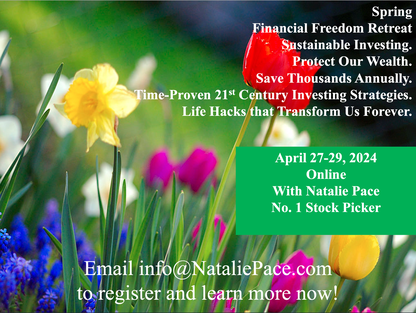 Join us for our Online Spring Financial Freedom Retreat. April 27-29, 2024. Email [email protected] or call 310-430-2397 to learn more. Register by Feb. 29, 2024 to receive the best price. Click for testimonials, pricing, hours & details. 3. Mortgage Interest Deduction. Mortgage interest paid on a qualified first and second home can be deducted. Click to read the IRS rules. This is a huge tax deduction that allows us to stop making the landlord rich, and pay less to the taxman. Home prices on a nationwide basis are at all-time highs and are largely unaffordable, so it’s not a great idea to just race out and purchase. (Over 20 million homes were foreclosed on before, during and after the Great Recession.) However, there are opportunities for smart buyers to rethink their housing and to vision and prepare, so that they can create a win-win-win for themselves when the opportunities arise again. These are some of the tools we teach in our Investor Educational Retreats. You can also read case studies in the Real Estate section of The ABCs of Money, 5th edition. 4. Student Loan Interest Deduction. If you earned less than $90,000 in MAGI (modified adjusted gross income) in 2023, and you paid on a student loan, you could deduct up to $2,500 of the interest you paid. 5. Qualified Education Expenses. You may be able to deduct education costs for yourself and/or a student in your immediate family. You may also be able to take an early distribution from an IRA without paying the early distribution penalty and additional taxes, if the withdrawal was made to cover a qualified education expense. And if the education is work-related, you may qualify for a Lifetime Learning Credit or a business deduction. 6. Energy Efficiency Credits. If you made energy-efficiency improvements to your home, you could qualify for up to $3,200 in tax credits. If you purchased an electric vehicle or installed solar or wind energy products, you could qualify for a generous tax credit. EV credits go up to $7,500 and wind/solar power products can be as high as 30 percent of the purchase price. The EV tax credit and the Residential Clean Energy Credit are both good through 2032. Certain rules apply to both, so be sure to visit the IRS pages and understand how to dot the I’s and cross the T’s. 7. Charitable Contributions. Your charitable contribution is tax deductible, provided it is made to a qualified 501c3. In addition to deducting your cash contributions, you generally can deduct the fair market value of any property you donate to qualified organizations. It is my experience that donating goods yields a better value in tax credits than you’d earn sitting all day through a yard sale. 8. Capital Gains. It’s important to do as much of our investing as possible in tax-protected retirement accounts. Doing so can eliminate capital gains taxes, which can be up to 37% for short-term capital gains. Did you know that you can even invest in real estate in your IRA? Email [email protected] to learn more. 9. Facing an Audit or Tax Levy? Hire an experienced, qualified accountant to review your case and communicate with the IRS on your behalf. As Wayne Layton, CPA, reminds us: "From time to time the IRS may suspect an error on a tax return or underpayment of tax and send my clients a letter assessing additional tax, along with penalties and interest. Most taxpayers become fearful upon receiving these letters as some of them even refer to liens and levies. Out of fear, many people just write a check to the IRS. As I see it, the letters from the IRS are simply telling the taxpayer to pay or prove why you do not owe the balance. There are many times that, on behalf of my clients, I write a letter disagreeing with the IRS’s position, attaching proof of why the taxpayer does not owe the additional tax, and the additional tax assessed is either reduced or the balance is adjusted to zero." Sometimes the IRS will agree with the accountant and adjust the balance due. Other times, if there is a good reason, the IRS may waive the penalties. And, of course, there may be times when you have to pay everything the IRS claims is owed. Most importantly, do not simply write the check before discussing your options with a qualified Certified Public Accountant. Bottom Line You don’t need to itemize deductions to take a tax credit. Many of the above tax benefits are available whether or not we itemize, and almost all of them offer additional savings in health premiums, capital gains taxes, utility costs, housing, gasoline and more. We can live a much richer life when we learn how to keep more of our money and stop making the taxman and billionaire corporations rich at our own expense. Join us at our April 27-29, 2024 Spring Financial Freedom Retreat. Learn how to invest and grow your wealth, green your retirement plan, easy and efficacious nest egg strategies, how to get hot and diversified (including in artificial intelligence), and what's safe in a Debt World. You'll even discover how to save thousands annually with smarter big-ticket choices. Yes, it's a complete money makeover. Email [email protected] to register. Learn the 15+ things you'll master and read testimonials in the flyer on the home page at NataliePace.com. Register by Feb. 29, 2024 to receive the best price. "Ten minutes into the first day I was already much smarter about investing than I ever thought I would be in my life and I knew I was in exactly the right place at this retreat. I am amazed at how EASY and FUN it is to make my money work for me and those I love. I think this kind of information should be compulsory in schools. I wish I'd learned this sooner." CM 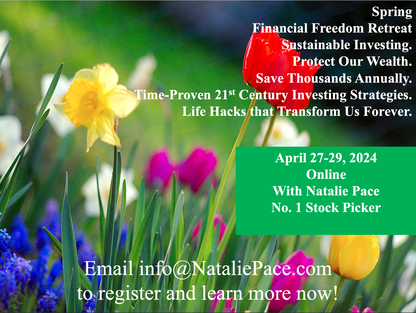 Join us for our Online Spring Financial Freedom Retreat. April 27-29, 2024. Email [email protected] or call 310-430-2397 to learn more. Register by Feb. 29, 2024 to receive the best price. Click for testimonials, pricing, hours & details.  Join us for our Restormel Royal Immersive Adventure Retreat. March 7-14, 2025. Email [email protected] to learn more. Register by April 30, 2024 to receive $200 off the regular price. Click for testimonials, pricing, hours & details. There is very limited availability, and you must register early to ensure that you get the exact room you want. This retreat includes an all-access pass to all of our online training for a full year for two and three 50-minute private, prosperity coaching sessions!  Natalie Wynne Pace is an Advocate for Sustainability, Financial Literacy & Women's Empowerment. Natalie is the bestselling author of The Power of 8 Billion: It's Up to Us and is the co-creator of the Earth Gratitude Project. She has been ranked as a No. 1 stock picker, above over 835 A-list pundits, by an independent tracking agency (TipsTraders). Her book The ABCs of Money remained at or near the #1 Investing Basics e-book on Amazon for over 3 years (in its vertical), with over 120,000 downloads and a mean 5-star ranking. The 5th edition of The ABCs of Money and the 2nd edition of Put Your Money Where Your Heart Is are the most recent releases of these books. Follow her on Instagram. Natalie Pace's easy as a pie chart nest egg strategies earned gains in the last two recessions and have outperformed the bull markets in between. That is why her Investor Educational Retreats, books and private coaching are enthusiastically recommended by Nobel Prize winning economist Gary S. Becker, TD AMERITRADE chairman Joe Moglia, Kay Koplovitz and many Main Street investors who have transformed their lives using her Thrive Budget and investing strategies. Click to view a video testimonial from Nilo Bolden. Check out Natalie Pace's Substack podcast on Apple and Spotify. Watch videoconferences and webinars on Youtube. Other Blogs of Interest Celebrity Jet CO2. Green Washing. The Facts. Some Solutions. Copper: Essential to the Clean Energy Transition. Uh. Oh. More Bank Trouble. Are Amazon, Square and Other Tech Companies Ripping Us Off? Housing. Unaffordable. What Works? Case studies and creative solutions. Don't Reach for Yield. Closed-End Funds. 2024 Investor IQ Test. Answers to the 2024 Investor IQ Test. Apple's Woes Drag Down the Dow. The Winners & Losers of 2023. Ozempic, Magnificent 7 & Beyond. 2024 Crystal Ball. The Underperforming DJIA, Full of Fossil Fuels and Forever Chemicals. A Spectacular Year for 3 of the Magnificent 7. The Best ROI* (Almost 40%!) & 7 Life Hacks That Save Thousands. Portugal Eliminates Tax Advantages for Ex-Pats. Holiday Gift Giving on any Budget. Including No Budget. Once in a Century Events are Happening Every Day. The Crypto Winter Enters Its 3rd Year. Earn $50,000 or More in Interest. Safely. Finally. Freebies and Deals for Black Friday and Cyber Monday. Auto Strikes End. EV Price Wars Continue. WeWork's Bankruptcy. Half-Empty Office Buildings. Problems in our Personal Wealth Plan. Solutions for Unaffordable Housing. Cruise Ships Give Freebies to Investors. Should You Take the Bait? Should You Take a Cruise? Bonds. Banks. The Treacherous Landscape of Keeping Our Money Safe. 7 Rules of Investing Air B N Bust? Barbie. Oppenheimer. Strikes. Streaming Wars. Netflix. Monero: A Token of Trust? 13 Lifestyle Choices to Reduce Waste, Pollution & CO2 & Save a Boatload of Dough. China Bans Apple 11-Point Green Checklist for Schools. Artificial Intelligence and Nvidia's Blockbuster Earnings Report Biotech in a Post-Pandemic World 10 Wealth Secrets of Billionaires and Royals. What Happened to Cannabis? Bank of America has $100 Billion in Bond Losses (on Paper) Lithium. Essential to EV Life. I'm Just Not Good at Investing. Investors Ask Natalie. Should I Buy an S&P500 Index Fund? Investors Ask Natalie. Bonds Lost More than Stocks in 2022. Do Cybersecurity Risks Create Investor Opportunities? I Lost $100,000. Investors Ask Natalie. Artificial Intelligence Report. Micron Banned in China. Intel Slashes Dividend. Buffett Loses $23 Billion. Branson's Virgin Orbit Declares Bankruptcy. Insurance Company Risks. Schwab Loses $41 Billion in Cash Deposits. Fiat. Crypto. Gold. BRICS. Real Estate. Alternative Investments. BRICS Currency. Will the Dollar Become Extinct? The Online Global Earth Gratitude Celebration 7 Green Life Hacks Fossil Fuels Touch Every Part of Our Lives Are There Any Safe, Green Banks? 7 Ways to Stash Your Cash Now. Lessons from the Silicon Valley Bank Failure. Which Countries Offer the Highest Yield for the Lowest Risk? Why We Are Underweighting Banks and the Financial Industry. 2023 Bond Strategy Emotions are Not Your Friend in Investing Bonds Lost -26%, Silver Held Strong. Save Thousands Annually With Smarter Energy Choices Is Your FDIC-Insured Cash Really Safe? Money Market Funds, FDIC, SIPC: Are Any of Them Safe? My 24-Year-Old is Itching to Buy a Condo. Should I Help Him? The 12-Step Guide to Successful Investing. The Bank Bail-in Plan on Your Dime. Rebalancing Your Nest Egg IQ Test. Answers to the Rebalancing Your Nest Egg IQ Test. Important Disclaimers Please note: Natalie Pace does not act or operate like a broker. She reports on financial news, and is one of the most trusted sources of financial literacy, education and forensic analysis in the world. Natalie Pace educates and informs individual investors to give investors a competitive edge in their personal decision-making. Any publicly traded companies or funds mentioned by Natalie Pace are not intended to be buy or sell recommendations. ALWAYS do your research and consult an experienced, reputable financial professional before buying or selling any security, and consider your long-term goals and strategies. Investors should NOT be all in on any asset class or individual stocks. Your retirement plan should reflect a diversified strategy, which has been designed with the assistance of a financial professional who is familiar with your goals, risk tolerance, tax needs and more. The "trading" portion of your portfolio should be a very small part of your investment strategy, and the amount of money you invest into individual companies should never be greater than your experience, wisdom, knowledge and patience. Information has been obtained from sources believed to be reliable. However, NataliePace.com does not warrant its completeness or accuracy. Opinions constitute our judgment as of the date of this publication and are subject to change without notice. This material is not intended as an offer or solicitation for the purchase or sale of any financial instrument. Securities, financial instruments or strategies mentioned herein may not be suitable for all investors. Celebrity Jet CO2. Green Washing. The Facts. Taylor Swift: The Average American Would Have to Live 600 Years to Match Her CO2 Emissions of 2022. How bad are commercial flights and cruise ships? Taylor Swift is in a league of her own these days, and it’s not just for being the only artist to win Album of the Year four times at the Grammys (congratulations on this monumental achievement), or because her Eras Tour is the highest-grossing music tour ever – surpassing a billion dollars in revenue (extraordinary). She is also being called out as the top CO2 emitter of all celebrities with private planes*. The emissions from her flight from Japan to Super Bowl Sunday on Feb. 11, 2024 were an estimated 40 tons of CO2. Total emissions from Swift’s private plane in 2022 were 9,293 tons (source: DGB Group), placing her at the top of celebrity plane polluters, followed by Floyd Mayweather, Jay-Z, A-Rod, Blake Shelton, Steven Spielberg, Kim Kardashian, Mark Wahlberg, Oprah Winfrey and Travis Scott – many of whom flew into Vegas for the Super Bowl. *Taylor Swift reportedly sold her Dassault Falcon 900 jet in January of 2024, after owning it since 2009. She allegedly purchases carbon offsets double the amount of her emissions. Offsets aren’t as effective as carbon drawdown and do nothing to actually remove the massive CO2 generated. Keep reading. Swift (and others) claim that their carbon credits offset their polluting ways. However, it’s quite important to note that the average American would have to live 600 years to contaminate the air as much as Taylor Swift did in just one year in 2022. It would take the average person living in France or the U.K. over 1,800 years to emit as much. (The U.S., Australia and Canada have 2-3 times the CO2 footprint of Europeans.) So, how bad is flying coach, especially compared to driving? What about cruise ships? See below for a graph of CO2 by transportation. As you can see, SUVs are worse on the environment than flying coach. CO2 by Transportation Private jets are in a horror league of their own, but cruise ships are terrible, as well. According to the Friends of the Earth analysis: One individual on a typical cruise ship emits roughly 421.43kg of CO² per day – more than double the emissions of most commercial flights. Alternatively, one individual staying in a high-end hotel, using carbon-heavy transportation and choosing higher carbon activities emits just 81.33 kg of CO² per day. The carbon footprint of an average land-based vacationer is around 51.88kg, less than one-eighth of the average cruisegoer. The lowest CO2 footprint is bike power. Followed by public transportation. In cities like Amsterdam, where bikes are everywhere, the denizens also enjoy greater health and far lower rates of obesity. Also, it bears repeating. Europeans often have a CO2 footprint of 5 or fewer tons per year per capita, while the Middle East, Australia, Canada, and the U.S. are 3X that. China is the biggest emitter by far, with 31% of the global CO2 emissions in 2020 (source: Union of Concerned Scientists). The greatest threat to our survivability on this beautiful planet is thinking that someone else will save things, while we continue on with business as usual. Celebrities are not immune from the effects of climate change. If we make excuses to keep our status quo, nothing improves. Let’s thank the scientists and environmental organizations for helping us to know better. Once we know better, it’s time to make the change. We can be the change we wish to see, and challenge leaders and famous folks to be accountable, too. While government leaders and celebrities may face a security risk if they fly coach, there are still many ways to substantially lower their CO2. There’s a massive difference between all and nothing. Additionally, if they have the resources for a private plane, they have the money to drawdown their emissions (not just “offset”). Below are just a few ways that all of us, including celebrities, can rethink our transportation CO2 footprint. Since transportation is the biggest CO2 emitter, reducing our personal footprint would be a game changer. We can also make smarter food, housing, electricity and consumption choices as well. Incidentally, green transportation is not just great for planetary health, but can also improve our physical and fiscal health. Did you know that most people spend more than $8000/annually on their personal vehicle, or that the dramatic rise in respiratory illnesses is directly linked to air pollution? Urban planner Brent Toderian consults with cities to eliminate congestion and reminds us that having too many cars on the road, even if they are electric, is an inefficient, gridlock transportation design. Making Smarter Transportation Choices: 6 Questions to Ask Ourselves Can I zoom instead of flying at least for the preparation stage of things? Can I plan my travel strategically, so I’m not zigzagging across the world? Is flying in a private plane necessary for my security, or am I using it as a party plane? Do I need a full-on bedroom in the sky, or will a cubby bed suffice? Can I downsize? Can the support team be incentivized to reduce their CO2 footprint? Instead of carbon offsets, should I invest in carbon drawdown, such as planting trees in a rainforest, donating to regenerative farming education, or sponsoring student gardens in public schools? And here is more color on each question… Can I zoom instead of flying at least for the preparation stage of things? Before the pandemic, I hosted our Financial Freedom Retreats in person. Occasionally, we’d have someone attending by videoconference, and it was always troublesome. That person typically felt isolated. Today, we host all of our initial retreats online, and save our in-person retreats for experienced individuals who have already attended the online training, and are ready to form deeper connections and partnerships. It’s actually easier for retreat attendees to see all of the power point presentations, to hear me up close and personal (as if I’m talking only to them), and to watch the training back to take the wisdom in more deeply. When everyone is on the same page, putting us all in the same location, in inspiring settings that offer experiential wisdom of what we’ve learned on paper, is far more powerful than taking people to a cool place and then sequestering them in a boardroom for 8+ hours each day. Can I plan my travel strategically, so I’m not zigzagging across the world? The Eras Tour coordinators, likely under the aegis of Taylor Swift, have planned the tour to minimize crisscrossing continents. She’ll be in Europe from early May through August. Swift might get a well-deserved break (writing/recording?) in September, followed by dates in the U.S. and Canada in October and November. If you have family on the opposite coast, rather than hopping back and forth multiple times throughout the year, can you take an extended visit once a year, dropping your travel CO2 by 2/3rds? Facetime and Zoom are great ways to stay connected in the interim. Is flying in a private plane necessary for my security, or am I using it as a party plane? This might be a fantasy scenario, but perhaps it will inspire creative thinking from some celebrities. Yes, it’s thrilling to attend the Super Bowl in person. However, if I’m also thinking of the future of my grandchildren, wouldn’t it be even more fun to sponsor a box where local underserved superstars attend the Super Bowl (perhaps inner-city high school athletes), while I host a party at home for my friends? Newscasters might love to feature the local students who get to experience the A-list treatment for the Big Game. Do I need a full-on bedroom in the sky, or will a cubby bed suffice? Can I downsize? The plane that Taylor Swift flew from Japan to the Super Bowl seats 17 passengers and has a master suite bedroom. Compare that to the first-class reclining seat, or the coach passenger leaning on strangers during snooze time. The larger the plane and the more weight (passengers, equipment or bedrooms), the more fuel is needed. On the flipside, The Prince and Princess of Wales (William and Catherine) took a commercial flight to France on September 9, 2023. In August, The Princess of Wales took Princess Charlotte and Prince Louis on an economy flight for their summer holiday in Balmoral. The couple have their Earth Shot Prize and are keenly aware of the message this sends with regard to their commitment to the environment. Can the support team be incentivized to reduce their CO2 footprint? When we place the planet at the top of our to-do list, our priorities and decisions become much easier. For high-profile celebrities, consulting an environmental expert on how to reduce their CO2 footprint by 30% annually would go a lot further in the public opinion and for the planet than purchasing carbon offsets, which do nothing to reduce CO2, or remove the pollutants from the damage they do. If the entire team is on board with the CO2 reduction plan, there can be even more incentives and rewards for the support team. Clif Bar offers employees up to $500 to purchase a commuter bike, if they agree to commute to work by bike at least twice a month, or use the bike frequently for local needs. Google’s GBike program offers bikes for getting around the headquarters’ campus, and loans bikes to employees who will use it at least 60% of the time to commute to work. “Treat the Earth like home” is one of the six principles of Dr. Bronner’s. Instead of carbon offsets, should I invest in carbon drawdown, such as planting trees in a rainforest, donating to regenerative farming education, or sponsoring student gardens in public schools? Nature is amazing. The waste of one animal or plant is the nutrition of another. We breathe and emit CO2. Plants and trees breathe that in, store it in the soil and give us clean food and air. In addition to reducing the CO2 footprint with smarter choices in all the ways that CO2 is emitted, why not complete the circle and draw down the CO2 emissions with charitable contributions to organizations that embrace nature’s remedies? Learn more about regenerative agriculture, student gardens, green tips, animal conservation and more in the Earth Gratitude docuseries (free) at https://earthgratitude.org. Bottom Line It’s easy to shrug and say, “Not my fault,” and continue doing what we do because what difference does it make while celebrities jet around to sports events and parties, while we bike with our backpacks to the grocery store. In that scenario, the ice caps keep melting. However, peer pressure is persuasive and facts are empowering. Social media can spark positive change. Call out the celebrities. Offer solutions. And take the challenge ourselves to reduce our own CO2 footprint. There is power in our consumer choices, and in our investing choices. Corporations can’t sell their gasoline, plastic, farm chemicals, celebrity jets, etc., if there is no one to buy them. We all need to make the connection between the source of our lifestyle, and our contribution to the problems. Celebrities have to realize that by partying in the sky, they are making the oil and gas companies rich and contributing to the environmental injustice of the communities affected by the fossil fuel industries – including the chemical spill in Palestine, Ohio, the Dead Zone in the Gulf of Mexico and Cancer Alley. When we think of our neighbors, or even the plight of fish, dolphins, whales and seafood, it's easier to do the right thing. Below are a few more blogs to take this conversation even deeper. 13 Lifestyle Choices to Reduce Waste, Pollution & CO2 and Save Thousands Annually. https://www.nataliepace.com/blog/september-18th-2023#/ 11-Point Green Checklist for Schools. https://www.nataliepace.com/blog/11-point-green-checklist-for-schools#/ ESG Investing: Missing the E (Environment) https://www.nataliepace.com/blog/the-dirty-truth-about-esg-investing-its-missing-the-e 10 Tips to Green Living https://www.nataliepace.com/blog/7-green-life-hacks#/ Cruise Ships Reward You For Investing. Is It Worth It? https://www.nataliepace.com/blog/cruise-ships-reward-you-for-investing-is-it-worth-it#/ Join us at our April 27-29, 2024 Spring Financial Freedom Retreat. Learn how to green your wealth plan, easy and efficacious nest egg strategies, how to get hot and diversified (including in artificial intelligence), and what's safe in a Debt World. You'll even discover how to save thousands annually with smarter big-ticket choices. Yes, it's a complete money makeover, which is a great way to start 2024! Email [email protected] to register. Learn the 15+ things you'll master and read testimonials in the flyer on the home page at NataliePace.com. Register by Feb. 29, 2024 to receive the best price. "Ten minutes into the first day I was already much smarter about investing than I ever thought I would be in my life and I knew I was in exactly the right place at this retreat. I am amazed at how EASY and FUN it is to make my money work for me and those I love. I think this kind of information should be compulsory in schools. I wish I'd learned this sooner." CM 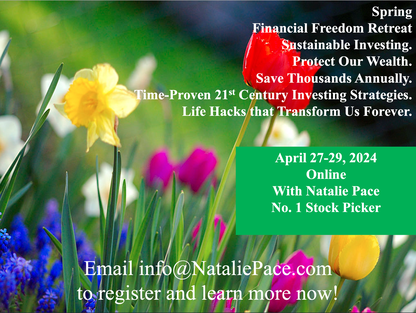 Join us for our Online Spring Financial Freedom Retreat. April 27-29, 2024. Email [email protected] or call 310-430-2397 to learn more. Register by Feb. 29, 2024 to receive the best price. Click for testimonials, pricing, hours & details.  Join us for our Restormel Royal Immersive Adventure Retreat. March 7-14, 2025. Email [email protected] to learn more. Register by April 30, 2024 to receive $200 off the regular price. Click for testimonials, pricing, hours & details. There is very limited availability, and you must register early to ensure that you get the exact room you want. This retreat includes an all-access pass to all of our online training for a full year for two and three 50-minute private, prosperity coaching sessions!  Natalie Wynne Pace is an Advocate for Sustainability, Financial Literacy & Women's Empowerment. Natalie is the bestselling author of The Power of 8 Billion: It's Up to Us and is the co-creator of the Earth Gratitude Project. She has been ranked as a No. 1 stock picker, above over 835 A-list pundits, by an independent tracking agency (TipsTraders). Her book The ABCs of Money remained at or near the #1 Investing Basics e-book on Amazon for over 3 years (in its vertical), with over 120,000 downloads and a mean 5-star ranking. The 5th edition of The ABCs of Money and the 2nd edition of Put Your Money Where Your Heart Is are the most recent releases of these books. Follow her on Instagram. Natalie Pace's easy as a pie chart nest egg strategies earned gains in the last two recessions and have outperformed the bull markets in between. That is why her Investor Educational Retreats, books and private coaching are enthusiastically recommended by Nobel Prize winning economist Gary S. Becker, TD AMERITRADE chairman Joe Moglia, Kay Koplovitz and many Main Street investors who have transformed their lives using her Thrive Budget and investing strategies. Click to view a video testimonial from Nilo Bolden. Watch videoconferences and webinars on Youtube. Other Blogs of Interest Copper: Essential to the Clean Energy Transition. Uh. Oh. More Bank Trouble. Are Amazon, Square and Other Tech Companies Ripping Us Off? Housing. Unaffordable. What Works? Case studies and creative solutions. Don't Reach for Yield. Closed-End Funds. 2024 Investor IQ Test. Answers to the 2024 Investor IQ Test. Apple's Woes Drag Down the Dow. The Winners & Losers of 2023. Ozempic, Magnificent 7 & Beyond. 2024 Crystal Ball. The Underperforming DJIA, Full of Fossil Fuels and Forever Chemicals. A Spectacular Year for 3 of the Magnificent 7. The Best ROI* (Almost 40%!) & 7 Life Hacks That Save Thousands. Portugal Eliminates Tax Advantages for Ex-Pats. Holiday Gift Giving on any Budget. Including No Budget. Once in a Century Events are Happening Every Day. The Crypto Winter Enters Its 3rd Year. Earn $50,000 or More in Interest. Safely. Finally. Freebies and Deals for Black Friday and Cyber Monday. Auto Strikes End. EV Price Wars Continue. WeWork's Bankruptcy. Half-Empty Office Buildings. Problems in our Personal Wealth Plan. Solutions for Unaffordable Housing. Cruise Ships Give Freebies to Investors. Should You Take the Bait? Should You Take a Cruise? Bonds. Banks. The Treacherous Landscape of Keeping Our Money Safe. 7 Rules of Investing Air B N Bust? Barbie. Oppenheimer. Strikes. Streaming Wars. Netflix. Monero: A Token of Trust? 13 Lifestyle Choices to Reduce Waste, Pollution & CO2 & Save a Boatload of Dough. China Bans Apple 11-Point Green Checklist for Schools. Artificial Intelligence and Nvidia's Blockbuster Earnings Report Biotech in a Post-Pandemic World 10 Wealth Secrets of Billionaires and Royals. What Happened to Cannabis? Bank of America has $100 Billion in Bond Losses (on Paper) Lithium. Essential to EV Life. I'm Just Not Good at Investing. Investors Ask Natalie. Should I Buy an S&P500 Index Fund? Investors Ask Natalie. Bonds Lost More than Stocks in 2022. Do Cybersecurity Risks Create Investor Opportunities? I Lost $100,000. Investors Ask Natalie. Artificial Intelligence Report. Micron Banned in China. Intel Slashes Dividend. Buffett Loses $23 Billion. Branson's Virgin Orbit Declares Bankruptcy. Insurance Company Risks. Schwab Loses $41 Billion in Cash Deposits. Fiat. Crypto. Gold. BRICS. Real Estate. Alternative Investments. BRICS Currency. Will the Dollar Become Extinct? The Online Global Earth Gratitude Celebration 7 Green Life Hacks Fossil Fuels Touch Every Part of Our Lives Are There Any Safe, Green Banks? 7 Ways to Stash Your Cash Now. Lessons from the Silicon Valley Bank Failure. Which Countries Offer the Highest Yield for the Lowest Risk? Why We Are Underweighting Banks and the Financial Industry. 2023 Bond Strategy Emotions are Not Your Friend in Investing Bonds Lost -26%, Silver Held Strong. Save Thousands Annually With Smarter Energy Choices Is Your FDIC-Insured Cash Really Safe? Money Market Funds, FDIC, SIPC: Are Any of Them Safe? My 24-Year-Old is Itching to Buy a Condo. Should I Help Him? The 12-Step Guide to Successful Investing. The Bank Bail-in Plan on Your Dime. Rebalancing Your Nest Egg IQ Test. Answers to the Rebalancing Your Nest Egg IQ Test. Important Disclaimers Please note: Natalie Pace does not act or operate like a broker. She reports on financial news, and is one of the most trusted sources of financial literacy, education and forensic analysis in the world. Natalie Pace educates and informs individual investors to give investors a competitive edge in their personal decision-making. Any publicly traded companies or funds mentioned by Natalie Pace are not intended to be buy or sell recommendations. ALWAYS do your research and consult an experienced, reputable financial professional before buying or selling any security, and consider your long-term goals and strategies. Investors should NOT be all in on any asset class or individual stocks. Your retirement plan should reflect a diversified strategy, which has been designed with the assistance of a financial professional who is familiar with your goals, risk tolerance, tax needs and more. The "trading" portion of your portfolio should be a very small part of your investment strategy, and the amount of money you invest into individual companies should never be greater than your experience, wisdom, knowledge and patience. Information has been obtained from sources believed to be reliable. However, NataliePace.com does not warrant its completeness or accuracy. Opinions constitute our judgment as of the date of this publication and are subject to change without notice. This material is not intended as an offer or solicitation for the purchase or sale of any financial instrument. Securities, financial instruments or strategies mentioned herein may not be suitable for all investors. Copper. Essential to All Things Energy. Ways to Profit from a Copper Rally, While Protecting Ourselves from Volatility. Copper is a great conductor, and is essential to anything powered by electricity. This metal is fundamental to electric vehicles, electric transmission, solar, wind and construction. At the same time, economic headwinds can wreak havoc on demand – forcing a delay in planned projects. The solar industry is struggling. The wind industry has been stalled out by the high cost of financing projects, supply chain disruptions and inflation. Copper mining giants like Freeport-McMoran and Rio Tinto have seen their share prices drop by over -25% since the highs of early 2022. How will all of this affect copper prices, copper companies and the top-producing countries in 2024 and 2025? Here are the areas we’ll cover in this blog. Copper: The New Oil Prices Could Rise Over the Next 2 Years Companies Funds and Portfolio Diversification Bottom Line And here is more information on each point. Copper: The New Oil Copper has been dubbed the New Oil by Goldman Sachs because the metal is key to the clean energy revolution. Copper is a great conductor of electricity and is essential to everything from power lines to electric vehicles and batteries. However, when economies hit headwinds, copper demand plummets, as do prices. In recoveries, the essential metal can soar during the rebuilding and expansion phase. Prices Could Rise Over the Next 2 Years Demand is expected to remain stronger than supply can keep up this year, partly as a result of a planned closure at First Quantum's Cobre Panama mine. At the same time, weakening fundamentals for construction and the auto industry could temper the need for copper. As a result of these dynamics, many analysts have muted expectations for copper prices, though the consensus is that prices could rise by almost 10% by 2025. Prices are currently at $3.70/pound. Some analysts have forecasted that prices could rise as high as $6.72/pound by 2025. One of the biggest question marks is China. China has become the largest consumer and exporter of electric vehicles in the world, and is projected to have 4.2% GDP growth this year, as compared to just 1.6% or less in the U.S., Canada and Europe (source: IMF). The major copper mining companies have an Asian hub to address the largest market in the world. Companies Freeport-McMoran, Southern Copper, Rio Tinto, Anglo American and BHP Billiton are well-known mining companies with large reserves of copper. McEwen Copper is a microcap stock with a large reserve in Argentina that is being developed with funding from Rio Tinto and Stellantis, alongside one of the largest individual shareholders, Chairman and Chief Owner Rob McEwen. All of these companies will benefit from a rise in copper prices, and all have suffered as the price has pulled back from a high of $4.25/pound since January of 2023. Many of the companies are still sporting expensive price-earnings ratios – largely as increased costs have slashed profits. Freeport-McMoran saw their annual net profit plunge from $3.47 billion in 2022 to just $1.85 billion in 2023. If you’d like a Copper Stock Report Card, email [email protected]. Funds and Portfolio Diversification Chile is the #1 producer of copper, with Peru in the 2nd place position. One of the benefits of purchasing a fund in a copper-rich country is that you have a portfolio of companies, instead of betting the farm on just one. Owning a fund based out of Peru could also offer country diversification to our portfolios, while also benefitting from a copper rally. We’ve chosen Peru over Chile in our sample portfolios because Peru’s GDP growth in 2024 is expected to be much higher than Chile’s, at 2.7% vs. 1.6%, respectively. Chile’s copper mining is nationalized. Copper is the top export of Peru. A rally in prices will benefit the country. If prices sink, the country (and fund) will be negatively impacted. For this reason (and others), we’re suggesting a dollar-cost-averaging approach to adding an age-appropriate slice of a Peruvian fund (such as iShares’ EPU). An added benefit of a fund like EPU is that the dividend is 4.3% -- easily double that of most U.S. based value funds. You can learn more about our pie chart investing with annual rebalancing at our next online Spring Financial Freedom Retreat. Bottom Line The U.S. economy is expected to slow down in 2024, from 2.5% in 2023 to 1.5%. Inflation and high interest rates are impacting construction and EV sales (all car sales) in a negative way. While interest rates might be cut in 2024, the Fed Fund rate is still expected to remain elevated in the 4.6% range. So far, analysts are anticipating that constrained supply will keep copper prices buoyant – even rising by almost 10% by 2025. Of course, economies are dynamic, which is why it is always important to have an age-appropriate, diversified plan in place and to rebalance at least once a year. (Due to elevated equity prices, economic uncertainty and other risk factors this year, we're overweighting an additional 10-20% safe.) Join us at our April 27-29, 2024 Spring Financial Freedom Retreat. Learn nest egg strategies, how to get hot and diversified (including in artificial intelligence), and what's safe in a Debt World. You'll even discover how to save thousands annually with smarter big-ticket choices. Yes, it's a complete money makeover, which is a great way to start 2024! Email [email protected] to register. Learn the 15+ things you'll master and read testimonials in the flyer on the home page at NataliePace.com. Register by Feb. 29, 2024 to receive the best price. "Ten minutes into the first day I was already much smarter about investing than I ever thought I would be in my life and I knew I was in exactly the right place at this retreat. I am amazed at how EASY and FUN it is to make my money work for me and those I love. I think this kind of information should be compulsory in schools. I wish I'd learned this sooner." CM 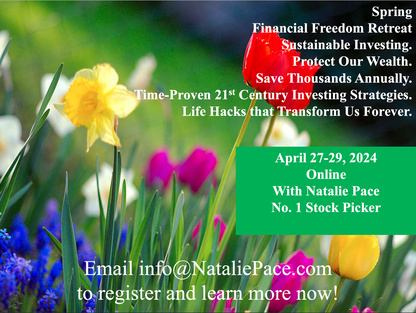 Join us for our Online Spring Financial Freedom Retreat. April 27-29, 2024. Email [email protected] or call 310-430-2397 to learn more. Register by Feb. 29, 2024 to receive the best price. Click for testimonials, pricing, hours & details.  Join us for our Restormel Royal Immersive Adventure Retreat. March 7-14, 2025. Email [email protected] to learn more. Register by April 30, 2024 to receive $200 off the regular price. Click for testimonials, pricing, hours & details. There is very limited availability, and you must register early to ensure that you get the exact room you want. This retreat includes an all-access pass to all of our online training for a full year for two and three 50-minute private, prosperity coaching sessions! 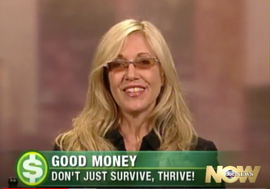 Natalie Wynne Pace is an Advocate for Sustainability, Financial Literacy & Women's Empowerment. Natalie is the bestselling author of The Power of 8 Billion: It's Up to Us and is the co-creator of the Earth Gratitude Project. She has been ranked as a No. 1 stock picker, above over 835 A-list pundits, by an independent tracking agency (TipsTraders). Her book The ABCs of Money remained at or near the #1 Investing Basics e-book on Amazon for over 3 years (in its vertical), with over 120,000 downloads and a mean 5-star ranking. The 5th edition of The ABCs of Money and the 2nd edition of Put Your Money Where Your Heart Is are the most recent releases of these books. Follow her on Instagram. Natalie Pace's easy as a pie chart nest egg strategies earned gains in the last two recessions and have outperformed the bull markets in between. That is why her Investor Educational Retreats, books and private coaching are enthusiastically recommended by Nobel Prize winning economist Gary S. Becker, TD AMERITRADE chairman Joe Moglia, Kay Koplovitz and many Main Street investors who have transformed their lives using her Thrive Budget and investing strategies. Click to view a video testimonial from Nilo Bolden. Check out Natalie Pace's Substack podcast on Apple and Spotify. Watch videoconferences and webinars on Youtube. Other Blogs of Interest Uh. Oh. More Bank Trouble. Are Amazon, Square and Other Tech Companies Ripping Us Off? Housing. Unaffordable. What Works? Case studies and creative solutions. Don't Reach for Yield. Closed-End Funds. 2024 Investor IQ Test. Answers to the 2024 Investor IQ Test. Apple's Woes Drag Down the Dow. The Winners & Losers of 2023. Ozempic, Magnificent 7 & Beyond. 2024 Crystal Ball. The Underperforming DJIA, Full of Fossil Fuels and Forever Chemicals. A Spectacular Year for 3 of the Magnificent 7. The Best ROI* (Almost 40%!) & 7 Life Hacks That Save Thousands. Portugal Eliminates Tax Advantages for Ex-Pats. Holiday Gift Giving on any Budget. Including No Budget. Once in a Century Events are Happening Every Day. The Crypto Winter Enters Its 3rd Year. Earn $50,000 or More in Interest. Safely. Finally. Freebies and Deals for Black Friday and Cyber Monday. Auto Strikes End. EV Price Wars Continue. WeWork's Bankruptcy. Half-Empty Office Buildings. Problems in our Personal Wealth Plan. Solutions for Unaffordable Housing. Cruise Ships Give Freebies to Investors. Should You Take the Bait? Should You Take a Cruise? Bonds. Banks. The Treacherous Landscape of Keeping Our Money Safe. 7 Rules of Investing Air B N Bust? Santa Rally 2023 or Time to Get Defensive? Barbie. Oppenheimer. Strikes. Streaming Wars. Netflix. Monero: A Token of Trust? 13 Lifestyle Choices to Reduce Waste, Pollution & CO2 & Save a Boatload of Dough. China Bans Apple 11-Point Green Checklist for Schools. Artificial Intelligence and Nvidia's Blockbuster Earnings Report Biotech in a Post-Pandemic World 10 Wealth Secrets of Billionaires and Royals. What Happened to Cannabis? Bank of America has $100 Billion in Bond Losses (on Paper) The USA AAA Credit Rating is on a Negative Watch. Lithium. Essential to EV Life. I'm Just Not Good at Investing. Investors Ask Natalie. Should I Buy an S&P500 Index Fund? Investors Ask Natalie. Bonds Lost More than Stocks in 2022. 2023 Company of the Year Do Cybersecurity Risks Create Investor Opportunities? Writers Strike, While Streaming CEOs Rake In Hundreds of Millions Annually. I Lost $100,000. Investors Ask Natalie. Artificial Intelligence Report. Micron Banned in China. Intel Slashes Dividend. Buffett Loses $23 Billion. Branson's Virgin Orbit Declares Bankruptcy. Insurance Company Risks. Schwab Loses $41 Billion in Cash Deposits. Fiat. Crypto. Gold. BRICS. Real Estate. Alternative Investments. BRICS Currency. Will the Dollar Become Extinct? The Online Global Earth Gratitude Celebration 7 Green Life Hacks Fossil Fuels Touch Every Part of Our Lives Are There Any Safe, Green Banks? 7 Ways to Stash Your Cash Now. Lessons from the Silicon Valley Bank Failure. Which Countries Offer the Highest Yield for the Lowest Risk? Solar, EVs, Housing, HSAs -- the Highest-Yield in 2023? Why We Are Underweighting Banks and the Financial Industry. 2023 Bond Strategy Emotions are Not Your Friend in Investing Bonds Lost -26%, Silver Held Strong. Save Thousands Annually With Smarter Energy Choices Is Your FDIC-Insured Cash Really Safe? Money Market Funds, FDIC, SIPC: Are Any of Them Safe? My 24-Year-Old is Itching to Buy a Condo. Should I Help Him? The 12-Step Guide to Successful Investing. The Bank Bail-in Plan on Your Dime. Rebalancing Your Nest Egg IQ Test. Answers to the Rebalancing Your Nest Egg IQ Test. Important Disclaimers Please note: Natalie Pace does not act or operate like a broker. She reports on financial news, and is one of the most trusted sources of financial literacy, education and forensic analysis in the world. Natalie Pace educates and informs individual investors to give investors a competitive edge in their personal decision-making. Any publicly traded companies or funds mentioned by Natalie Pace are not intended to be buy or sell recommendations. ALWAYS do your research and consult an experienced, reputable financial professional before buying or selling any security, and consider your long-term goals and strategies. Investors should NOT be all in on any asset class or individual stocks. Your retirement plan should reflect a diversified strategy, which has been designed with the assistance of a financial professional who is familiar with your goals, risk tolerance, tax needs and more. The "trading" portion of your portfolio should be a very small part of your investment strategy, and the amount of money you invest into individual companies should never be greater than your experience, wisdom, knowledge and patience. Information has been obtained from sources believed to be reliable. However, NataliePace.com does not warrant its completeness or accuracy. Opinions constitute our judgment as of the date of this publication and are subject to change without notice. This material is not intended as an offer or solicitation for the purchase or sale of any financial instrument. Securities, financial instruments or strategies mentioned herein may not be suitable for all investors. Uh Oh. More Bank Trouble. Last February 10, 2023, we published a blog advising everybody that we were underweighting the financial industry. Little did we know that the first bank failure of 2023 was only a month away! Silicon Valley Bank was seized by the FDIC on March 10, 2023. That was followed very quickly by the failure of Signature Bank on March 12, 2023. First Republic Bank was rescued by JP Morgan on May 1, 2023. Since then, news about banks has been fairly quiet, although there have been two more failures, one in July and another on November 3. The bank that began having troubles last week is the same one that took over Signature Bank – New York Community Bank. Today, Moody's downgraded NYCB to junk. Here are a few things we’ll cover in this blog. New York Community Bank If You Wait for the Headlines, It’s Too Late Low Credit Quality in U.S. Banks Financial Engineering Our Own Checking, Savings & CDs The High Cost of Debt (More than Defense) Bottom Line And here is more information on each point. New York Community Bank On Wednesday, January 31, 2024, the New York Community Bank released their fourth quarter and full year 2023 earnings at 7 AM before the market opened. By the time the market did open two and ½ hours later, the bank’s share price had already lost a third of its value. What happened? If You Wait for the Headlines, It’s Too Late What were investors so worried about? One of the concerns was that the dividend was slashed from $0.17 a share in the third quarter to just five cents a share, so that the company could “build capital.” As we saw with General Electric in 2017 and countless other troubled companies since, the higher the dividend we are receiving, the higher the risk that we are taking on. If the dividend gets slashed, there is a gap down in the share price before most Main Street investors can react. NYCB closed with a share price of $10.38 on Jan. 30, 2024, and opened on Wall Street the following morning at $7.12. The current price is $4.20 – down almost -60% on the week. Rather than being cut on the wrong side of the blade (errr trade), it’s better to be protected before the trouble occurs. One way of protecting ourselves is to underweight U.S. financials in our wealth plan. Below are a few reasons why. Low Credit Quality in U.S. Banks We’ve also been warning about the commercial real estate industry. CRE and long-term bonds are two of the major challenges of banks today. WeWork declared bankruptcy on November 6, 2023, but there are many other CRE REITs in distress. As we indicated in our November 9, 2023 blog, the vacancy rate in office buildings remains heightened in a post-pandemic, work-from-home world. Some of the most vulnerable cities are experiencing vacancy rates that are higher than 20%. New York City is one of the areas in the throes of the CRE crisis, which is at the heart of the downgrade of New York Community Bank today. According to Moody’s, “NYCB's core historical commercial real estate lending, significant and unanticipated loss on its New York office and multifamily property could create potential confidence sensitivity.” A report last year by JP Morgan warned that small banks are the most vulnerable. CRE loans can make up 29% of assets in regional community institutions, compared with only 6.5% at the big banks. So, it’s important to underweight small cap U.S. financials, too. Commercial real estate isn’t the only bugaboo for banks. Because interest rates were so low for so long, and money was so cheap and easy, a lot of banks borrowed and borrowed and borrowed, and let their own credit rating drop to the lowest rung of investment grade. Below are the current ratings of some major U.S. banks. I’ve also included two Canadian banks, and one Australian bank. By comparison, Canadian and Australian banks tend to have more risk aversion than their U.S. counterparts. They fared a great deal better during the financial meltdown of the Great Recession than the U.S. and European banks did. Australia still has a AAA sovereign credit rating, whereas the U.S. and Canada are both AA+ (source: Fitch Ratings). In addition to higher credit quality, the Australian ETFs tend to pay higher dividends – often double what the U.S. and Canada pay in their value funds. Country diversification can add a layer of both protection and performance to our portfolio. It’s also important to remember that when the U.S. (or China) sneezes, the rest of the world catches a cold. Incidentally, First Citizens Bancshares, the company that purchased Silicon Valley Bank in receivership, is at the lowest rung of investment grade: BBB with a negative outlook (source: S&P Global). Financial Engineering Earnings reports in the financial industry can be quite misleading. The New York Community Bank and First Citizens Bancshares look like rock stars on the Bank Stock Report Card, with year-over-year revenue growth of 54% and over 100%, respectively – due to their acquisitions of the failed banks. (Email [email protected] with BANK STOCK REPORT CARD in the subject line, if you’d like a copy.) However, there is a great deal of financial engineering going on that helps the banks look better on earnings reports than might be the full story – something the dividend slash of The New York Community Bank reminds us of in spades. The bank failures didn’t stop last year because all of the risk went away. They stopped because the Federal Reserve set up a facility that allowed banks to borrow against their paper losses in long-term bonds, to gave them time to figure out how to raise more capital, diversify their assets and strengthen their balance sheets. The Bank Term Funding Program will stop making new loans on March 11, 2024. As one example of how financial engineering works, The New York Community Bank reported $2.3 billion in net income for 2023, compared to just $617 million in 2022. However, when you read the fine print, you see that the income wasn’t as exciting as we might think. $2.2 billion of the 2.3 billion net income was a one time “bargain purchase gain“ from the Signature Bank transaction. In fact, it wasn’t enough to keep the company from slashing their dividend. In the 4th quarter of last year, NYCB posted a net loss of -$260 million. Our Own Checking, Savings & CDs Bond and CRE exposure are challenges for the banks, but so are uninsured deposits. When uninsured depositors get wind of issues, they move quickly to protect their money. 85% of Silicon Valley Bank’s depositors were uninsured. The FDIC created a special exemption to cover those people. However, it wasn’t with immediate access to their cash. It was with “receivership certificates for the remaining amount of their uninsured funds.” The SVB exemption isn’t one that will be applied across the board. It’s important to do our best to observe federally insured limits in our personal checking, savings and Certificates of Deposit, and to lean into banks with higher credit quality. The High Cost of Debt (More than Defense) In my recent interview with Howard Silverblatt, the senior index analyst of the S&P 500, he predicted a 4-6% rise in the S&P500® in 2024. (The S&P500 is already up 3.9%. Will the rest of the year be volatile, but only slightly up, or will the market prove him wrong on the upside or downside?) While pre-election years can be gangbusters on Wall Street, election years tend to be pretty tepid. Sometimes they are horrifying, as they were in 2000 (the onset of the Dot Com Recession) and 2008 (the onset of the Great Recession). Silverblatt also noted that the interest being paid on the U.S. public debt, which is currently at $34.16 trillion, is costing too much. The CBO projects that net interest outlays this year are going to be 2.4% of GDP rising to 3.6% by 2033. Defense takes up about 3% of GDP. That puts pressure on the Federal Reserve Board to cut interest rates. Federal Reserve Board Jerome Powell has been firm about another pause in interest rates in the March 19-20, 2024 FOMC meeting (no rate cut). In his interview with 60 Minutes on Sunday, Powell stressed that policy would be driven by the data. In the December 2023 meeting, the FOMC projected that 2024 could see rate cuts that would bring the Fed Fund rate down to 4.6%, from 5.25-5.50% where is stands today. The economic projections will be updated on March 20, 2024. While rate cuts are predicted, 4.6% is still much higher than interest rates have been over the last 15+ years. It will still be hard for a lot of potential home buyers to qualify for loans or afford housing at current prices. Corporations that need to raise capital will still be paying a lot more in interest. The potential rate cuts will not be enough to recover the massive losses that long-term government bonds saw in 2022, or to offset the continued problem of duration risk and low credit quality. Bottom Line Economists are still holding out hope that there will be no recession in 2024, or that if there is one, it will be quite brief and mild. Main Street investors are still high on the headlines of 26.3% gains in the S&P 500 for 2023. (How many are aware that without the Magnificent 7 doubling in value, the gains would have been half that, or that 1/3 of the Dow Jones Industrial Average companies actually saw their share price fall last year?) There continues to be a lot of risk on Wall Street today, including debt, bank trouble, elevated share prices, low credit quality, bond losses and duration risk, which is why we are overweighting safe in our sample pie charts. In a Debt World where banks are still failing and reeling from bond losses (on paper), we are also stressing that everyone needs to know what they hold on the safe side of their plan. We spend one full day on What’s Safe at our Financial Freedom Retreats. With the amount of exposure that regional banks have to the distressed CRE market, we might start seeing a lot more dividend cuts and gap downs in share price. The FDIC, Federal Reserve Board and Treasury Department are all putting pressure on banks to shore up their reserves. In our sample pie charts, we continue to underweight financials of all sizes. As we indicated, the risk is even more heightened in small and mid-cap regional banks. Since a lot of the U.S. value funds have a great deal of financials in them, it’s a great idea to consider value substitution funds and leaning into country diversification, where we can often get a higher yield with lower risk. This is actually pretty easy to self-direct once you learn our pie chart system. Even if you have someone managing your plan, it’s important to know what you own and why, and to be the boss of your money. Join us at our next Spring Financial Freedom Retreat April 27-29, 2024. Get the best price when you register by February 29, 2024. Friends and family can join you for a great discount! Join us at our April 27-29, 2024 Spring Financial Freedom Retreat. Learn nest egg strategies, how to get hot and diversified (including in artificial intelligence), and what's safe in a Debt World. You'll even discover how to save thousands annually with smarter big-ticket choices. Yes, it's a complete money makeover, which is a great way to start 2024! Email [email protected] to register. Learn the 15+ things you'll master and read testimonials in the flyer on the home page at NataliePace.com. Register by Feb. 29, 2024 to receive the best price. "Ten minutes into the first day I was already much smarter about investing than I ever thought I would be in my life and I knew I was in exactly the right place at this retreat. I am amazed at how EASY and FUN it is to make my money work for me and those I love. I think this kind of information should be compulsory in schools. I wish I'd learned this sooner." CM 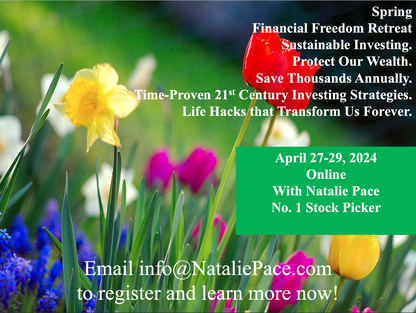 Join us for our Online Spring Financial Freedom Retreat. April 27-29, 2024. Email [email protected] or call 310-430-2397 to learn more. Register by Feb. 29, 2024 to receive the best price. Click for testimonials, pricing, hours & details.  Join us for our Restormel Royal Immersive Adventure Retreat. March 7-14, 2025. Email [email protected] to learn more. Register by April 30, 2024 to receive $200 off the regular price. Click for testimonials, pricing, hours & details. There is very limited availability, and you must register early to ensure that you get the exact room you want. This retreat includes an all-access pass to all of our online training for a full year for two and three 50-minute private, prosperity coaching sessions! 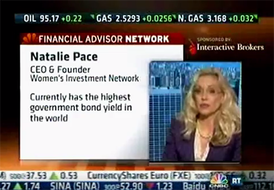 Natalie Wynne Pace is an Advocate for Sustainability, Financial Literacy & Women's Empowerment. Natalie is the bestselling author of The Power of 8 Billion: It's Up to Us and is the co-creator of the Earth Gratitude Project. She has been ranked as a No. 1 stock picker, above over 835 A-list pundits, by an independent tracking agency (TipsTraders). Her book The ABCs of Money remained at or near the #1 Investing Basics e-book on Amazon for over 3 years (in its vertical), with over 120,000 downloads and a mean 5-star ranking. The 5th edition of The ABCs of Money and the 2nd edition of Put Your Money Where Your Heart Is are the most recent releases of these books. Follow her on Instagram. Natalie Pace's easy as a pie chart nest egg strategies earned gains in the last two recessions and have outperformed the bull markets in between. That is why her Investor Educational Retreats, books and private coaching are enthusiastically recommended by Nobel Prize winning economist Gary S. Becker, TD AMERITRADE chairman Joe Moglia, Kay Koplovitz and many Main Street investors who have transformed their lives using her Thrive Budget and investing strategies. Click to view a video testimonial from Nilo Bolden. Check out Natalie Pace's Substack podcast on Apple and Spotify. Watch videoconferences and webinars on Youtube. Other Blogs of Interest Are Amazon, Square and Other Tech Companies Ripping Us Off? Housing. Unaffordable. What Works? Case studies and creative solutions. Don't Reach for Yield. Closed-End Funds. 2024 Investor IQ Test. Answers to the 2024 Investor IQ Test. Apple's Woes Drag Down the Dow. The Winners & Losers of 2023. Ozempic, Magnificent 7 & Beyond. 2024 Crystal Ball. The Underperforming DJIA, Full of Fossil Fuels and Forever Chemicals. A Spectacular Year for 3 of the Magnificent 7. The Best ROI* (Almost 40%!) & 7 Life Hacks That Save Thousands. Portugal Eliminates Tax Advantages for Ex-Pats. Holiday Gift Giving on any Budget. Including No Budget. Once in a Century Events are Happening Every Day. The Crypto Winter Enters Its 3rd Year. Earn $50,000 or More in Interest. Safely. Finally. Freebies and Deals for Black Friday and Cyber Monday. Auto Strikes End. EV Price Wars Continue. WeWork's Bankruptcy. Half-Empty Office Buildings. Problems in our Personal Wealth Plan. Solutions for Unaffordable Housing. Cruise Ships Give Freebies to Investors. Should You Take the Bait? Should You Take a Cruise? Bonds. Banks. The Treacherous Landscape of Keeping Our Money Safe. 7 Rules of Investing Air B N Bust? Santa Rally 2023 or Time to Get Defensive? Barbie. Oppenheimer. Strikes. Streaming Wars. Netflix. Monero: A Token of Trust? 13 Lifestyle Choices to Reduce Waste, Pollution & CO2 & Save a Boatload of Dough. China Bans Apple 11-Point Green Checklist for Schools. Artificial Intelligence and Nvidia's Blockbuster Earnings Report Biotech in a Post-Pandemic World 10 Wealth Secrets of Billionaires and Royals. What Happened to Cannabis? Bank of America has $100 Billion in Bond Losses (on Paper) The USA AAA Credit Rating is on a Negative Watch. Lithium. Essential to EV Life. I'm Just Not Good at Investing. Investors Ask Natalie. Should I Buy an S&P500 Index Fund? Investors Ask Natalie. Bonds Lost More than Stocks in 2022. 2023 Company of the Year Do Cybersecurity Risks Create Investor Opportunities? Writers Strike, While Streaming CEOs Rake In Hundreds of Millions Annually. I Lost $100,000. Investors Ask Natalie. Artificial Intelligence Report. Micron Banned in China. Intel Slashes Dividend. Buffett Loses $23 Billion. Branson's Virgin Orbit Declares Bankruptcy. Insurance Company Risks. Schwab Loses $41 Billion in Cash Deposits. Fiat. Crypto. Gold. BRICS. Real Estate. Alternative Investments. BRICS Currency. Will the Dollar Become Extinct? The Online Global Earth Gratitude Celebration 7 Green Life Hacks Fossil Fuels Touch Every Part of Our Lives Are There Any Safe, Green Banks? 7 Ways to Stash Your Cash Now. Lessons from the Silicon Valley Bank Failure. Which Countries Offer the Highest Yield for the Lowest Risk? Solar, EVs, Housing, HSAs -- the Highest-Yield in 2023? Why We Are Underweighting Banks and the Financial Industry. 2023 Bond Strategy Emotions are Not Your Friend in Investing Bonds Lost -26%, Silver Held Strong. Save Thousands Annually With Smarter Energy Choices Is Your FDIC-Insured Cash Really Safe? Money Market Funds, FDIC, SIPC: Are Any of Them Safe? My 24-Year-Old is Itching to Buy a Condo. Should I Help Him? The 12-Step Guide to Successful Investing. The Bank Bail-in Plan on Your Dime. Rebalancing Your Nest Egg IQ Test. Answers to the Rebalancing Your Nest Egg IQ Test. Important Disclaimers Please note: Natalie Pace does not act or operate like a broker. She reports on financial news, and is one of the most trusted sources of financial literacy, education and forensic analysis in the world. Natalie Pace educates and informs individual investors to give investors a competitive edge in their personal decision-making. Any publicly traded companies or funds mentioned by Natalie Pace are not intended to be buy or sell recommendations. ALWAYS do your research and consult an experienced, reputable financial professional before buying or selling any security, and consider your long-term goals and strategies. Investors should NOT be all in on any asset class or individual stocks. Your retirement plan should reflect a diversified strategy, which has been designed with the assistance of a financial professional who is familiar with your goals, risk tolerance, tax needs and more. The "trading" portion of your portfolio should be a very small part of your investment strategy, and the amount of money you invest into individual companies should never be greater than your experience, wisdom, knowledge and patience. Information has been obtained from sources believed to be reliable. However, NataliePace.com does not warrant its completeness or accuracy. Opinions constitute our judgment as of the date of this publication and are subject to change without notice. This material is not intended as an offer or solicitation for the purchase or sale of any financial instrument. Securities, financial instruments or strategies mentioned herein may not be suitable for all investors. |
AuthorNatalie Pace is the co-creator of the Earth Gratitude Project and the author of The Power of 8 Billion: It's Up to Us, The ABCs of Money, The ABCs of Money for College, The Gratitude Game and Put Your Money Where Your Heart Is. She is a repeat guest & speaker on national news shows and stages. She has been ranked the No. 1 stock picker, above over 830 A-list pundits, by an independent tracking agency, and has been saving homes and nest eggs since 1999. Archives
July 2024
Categories |






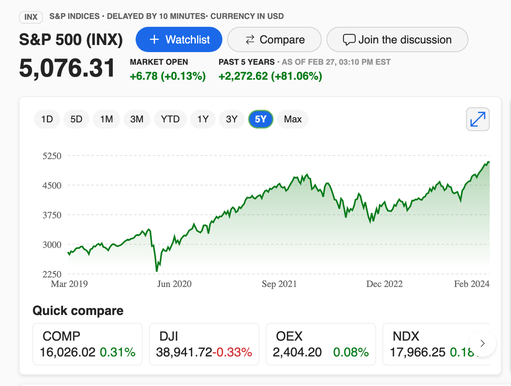
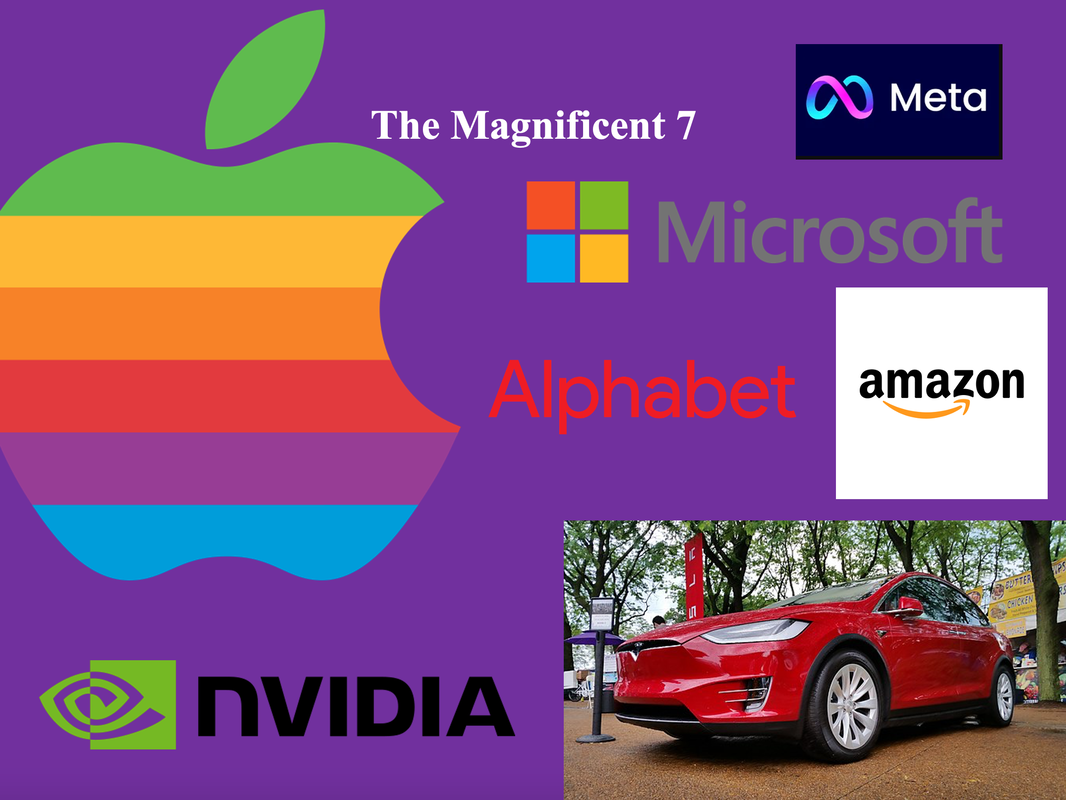
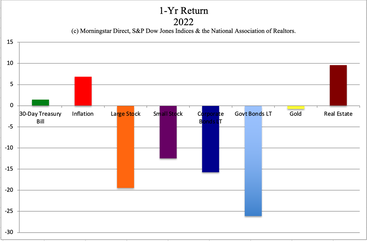
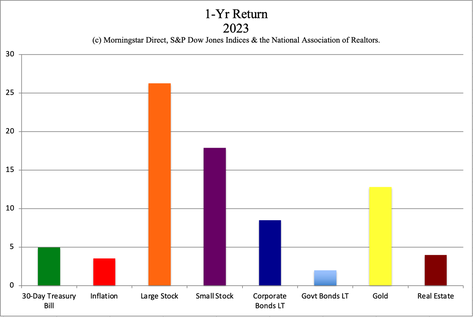
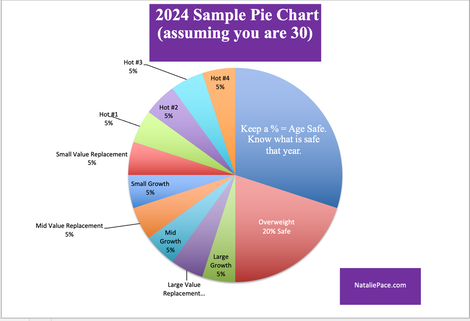


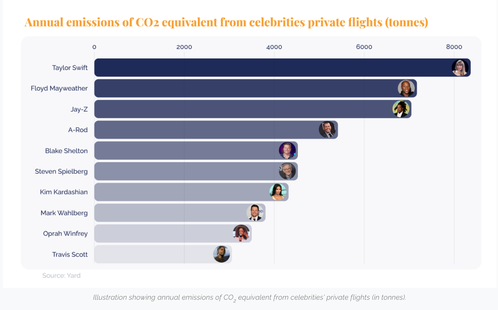
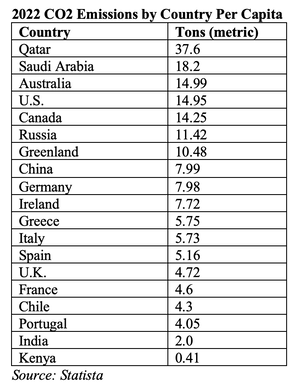
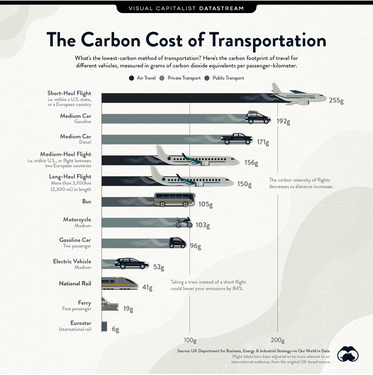
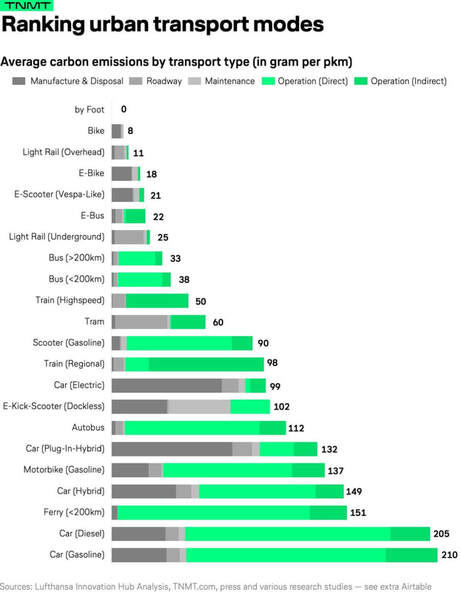
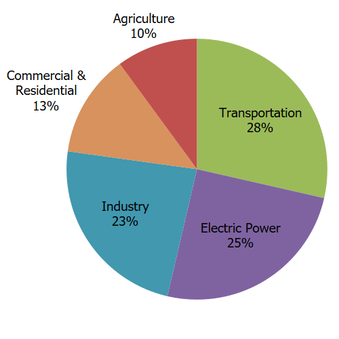







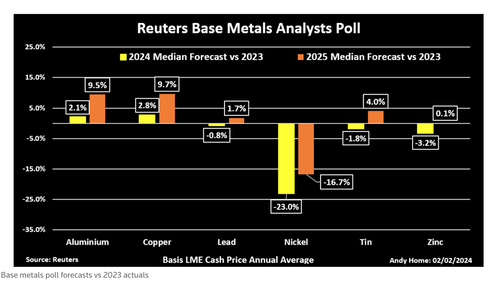
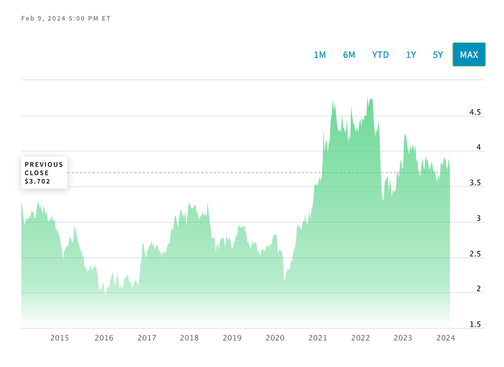
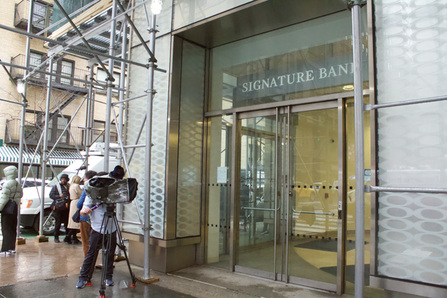
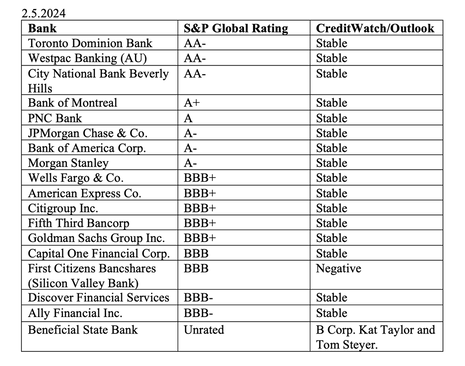
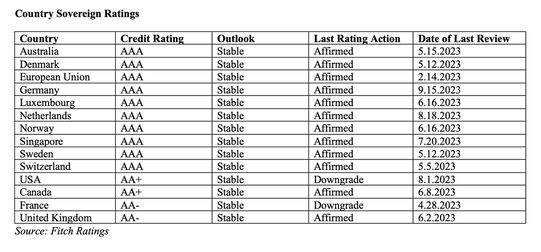
 RSS Feed
RSS Feed